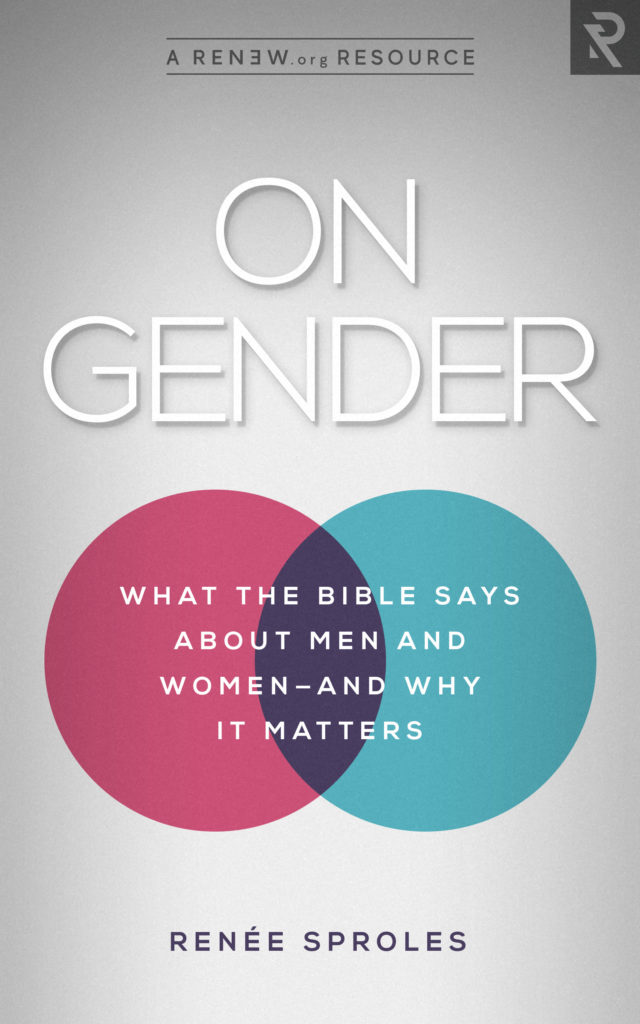
Are We Turning into Skeptics of the Bible?
In May of 2017 the satirical Christian website, The Babylon Bee, published this headline:
“Man Sitting Literally Three Feet Away From Bible Asks God To Speak To Him.”
The article began,
According to sources, local man Steve Harrison fervently prayed Thursday that the Lord would speak to him and make His will for the man’s life clear, all while sitting literally three feet away from God’s Word as revealed in the Bible…
“If you would just show me your plan for my life, and just reveal your truth to me, Father God,” he prayed, somehow missing the fact that God’s truth had already been perfectly revealed to him in the Scriptures. “I just really need you to speak to me personally, Lord.”
As funny as this story seems, I’m finding it to be more and more true for the twenty- and thirty-somethings my husband and I teach and mentor. For almost two decades, we have team-taught hundreds of young parents in a class on getting to the heart of a child by calling them to obedience, as that is when they are most teachable.
In a Renew.org article on the crisis of crumbling authority, my co-teacher and friend, Bonnie Blaylock, noted a shift in the worldview of the families taking that class over the past year or so. For most of those 20 years, when we polled parents about what they most wanted to see in their children, answers would typically include
- Godliness
- A trusting relationship with their parents
- Obedience
But just in the past year or so, parents’ answers to this question have radically changed. Now they cite these things as the most desirable skills they’d like to instill in their children.
- Thinking for themselves
- Success
- Questioning authority
Besides the day-to-day consequences of regularly allowing your two-year-old to think for herself and question your authority, this has far-reaching consequences, including how we view God’s reliable Word. And these parents are very much like our Babylon Bee man: they are eager to pray. They pray and they pray and they pray! But they don’t seem to appreciate or fully understand the magnificent treasure that we have in God’s reliable Word.
So, in case you didn’t already realize this, it’s no longer a valid assumption, even in church settings, that young adults believe Scripture might have any active authority in their lives.
So why are we so skeptical these days?
We are skeptical of biblical authority because of our cultural moment and the terrible toll that failures of authority have taken on us, yet we can confidently submit to Scripture because of who Jesus is and how He responded to it.
We are the product of our cultural moment, and as such, we are the victims of the fallout from authority failures.
In an interview with The Gospel Coalition, Tim Keller noted that the stage was set for our cultural moment way back in the 18th century. This is when “Enlightenment” thinkers insisted that the modern person must question all tradition, revelation, and external authority by subjecting them to the supreme court of his or her own reason and intuition. Let me repeat: The root idea of modernity is the overturning of all authority outside of the self. That is, there is no moral order with an authority more fundamental than our own experiences.
So, if the Enlightenment set the stage for the dethroning of authority, what are some of the recent players in this cultural coup?
In her article, my friend, Bonnie, noted that the internet, the iPhone, and social media are all influencing how we view authority. Google is now at everyone’s fingertips; we can retrieve a dozen expert opinions in just a few seconds. Facebook, Instagram, Twitter and Reddit enable us to shout our personal truths based on our own moral authority. We treat our careers, our families, and, many times, our faith on a personal cost-benefit basis, taking the best opportunities available to us.
She noted, “God, Scripture, and other fusty institutions [can seem] outmoded, dated, and therefore untrustworthy. Actual human relationships and church community take a backseat to the ‘friends’ and ‘followers’ one could garner online, always awake and available.” Add to this the fact that a near majority of families, even in church, come from divorced homes, and were raised during a financial crisis caused by—you guessed it—huge failures in authority, and it’s no wonder that authority has become a dirty word for people under age 40.
In a world where so many authority structures have let us down, or worse, caused serious harm, we have become calloused and lost discernment of what (if anything) remains trustworthy.
Given our society, a good dose of wariness and skepticism is warranted, but the consequences are real.
- The consequences show in the college graduate who, baptized in youth group and raised by Christian parents, moves in with his girlfriend “just to see” if they’d like to marry.
- The consequences show in the beach photos of nearly naked bodies that twenty-something young women from your church post on Instagram.
- The consequences show in 72% of 18-24 year-olds who actively seek out pornography on the internet.
- The consequences even show in those parents in our parenting class who don’t hold obedience as a goal of their parenting.
So how do you teach the men and women in your discipleship groups, small groups, classes, or ministries to uphold God’s reliable Word when they don’t really believe in an authority outside of themselves? Even if they want to believe in God’s reliable Word, they are likely very skeptical when faced with a teaching they don’t like or understand.
They may not come right out and say it, but they probably believe they can pick and choose what to use from Scripture to achieve their goals and live their best lives.
Let me give you an example of what this sounds like:
I recently reviewed Jen Hatmaker’s new book, Fierce, Free, and Full of Fire: The Guide to Being Glorious You where this philosophy was on full display. A self-professed “hippie-dippy, Big Love Jesus type,” Hatmaker has almost 1 million followers on social media — many of whom are likely in your churches. She unabashedly promotes a subjective truth based on her own experience. For example, when defining love, she says,
Loving people just makes sense to me. I am unable to separate policy, theology, rhetoric, theories, or interpretations from the people they affect. I lack all objectivity. I evaluate the merit of every idea based on how it bears upon actual people… And to be very clear, I believe loving people fits perfectly under the umbrella of loving God, so when “loving God” results in pain, exclusion, harm, or trauma to people, then we are absolutely doing the first part wrong. It it not God in error but us.[1]
To be clear, Hatmaker has decided that when she subjects Scripture to the supreme court of her mind, her opinion wins.
So what would persuade someone under 40 to fully submit to God’s reliable Word? They need to know two important things about Jesus, and their confidence in God’s reliable Word will follow.
- Who Jesus Christ is
- What He says about Scripture
These will be the subjects of my next article.
[1] Hatmaker, Jen. Fierce, Free, and Full of Fire: The Guide to Being Glorious You (Nelson Books, 2020), 91.








